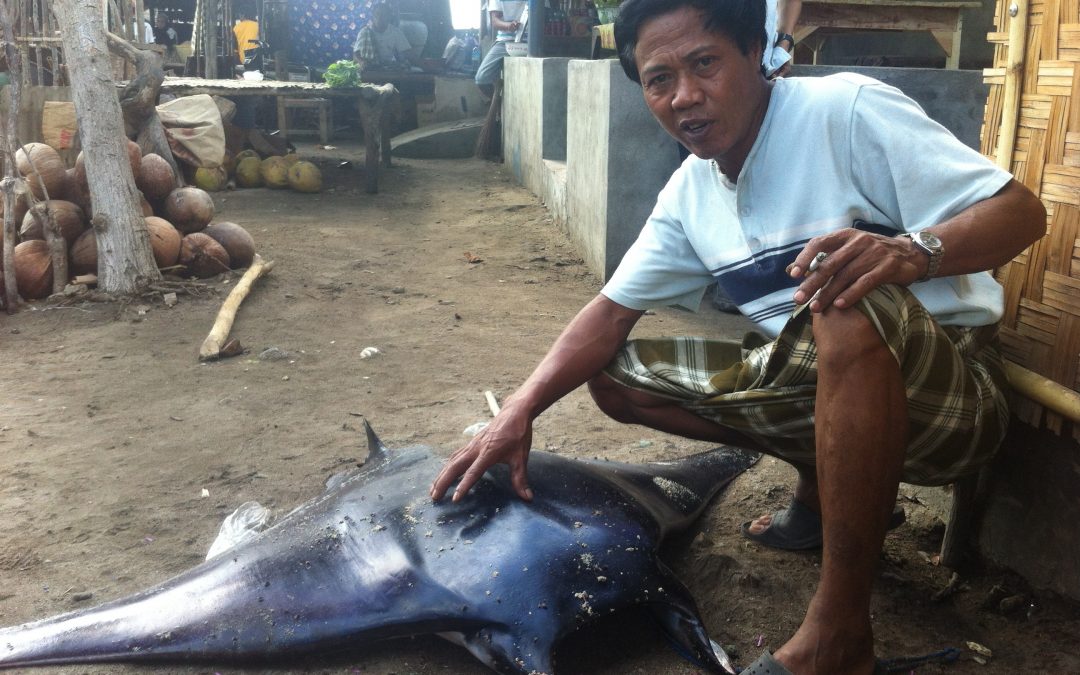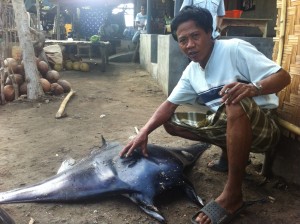A MantaWatch survey team recently conducted a rapid assessment of the mobula and manta fisheries in western Lombok, Indonesia.
In Bangka Bangka, the principle fishing port of southwest Lombok, our survey team came face to face with this fishery. Manta and mobula rays are regularly landed in Bangka Bangka, a bycatch of the local gill net fishery.
Further north in Ampenan, an even larger fishing port on Lombok’s northwest coast, local fisherman Mr Zainudin explained that mantas and mobulas are a lucrative windfall, “We can sell the gill rakers to traders from Java and China for around $20 per kilogram”. In contrast the small tuna that make up the majority of the local catch only fetch $1-2 per kilogram. Mr Zainudin went on to explain that most of the body is discarded–apparently manta meat does not taste very good.
A little further north lies Sengiggi and the Gili Islands, a major beach and diving destination. Here the mantas are a major attraction, drawing divers and snorkelers from around the world for a chance to see the mantas in their natural environment.
With diving trips selling for up to $100 per person per day, and the top hotels for around $200 per night, you don’t need to be an economist to calculate whether manta tourism or manta fisheries offer the best potential for Lombok’s development. And yet at this time Lombok has no management plans or regulations in place to balance the needs of low-income coastal communities, the valuable tourism sector, and the charismatic marine species on which they both depend.
Let us know your thoughts in the comments below. Should Lombok’s fishermen be able to take advantage of these economic windfalls? Or should mantas be protected as valuable tourism attraction?



